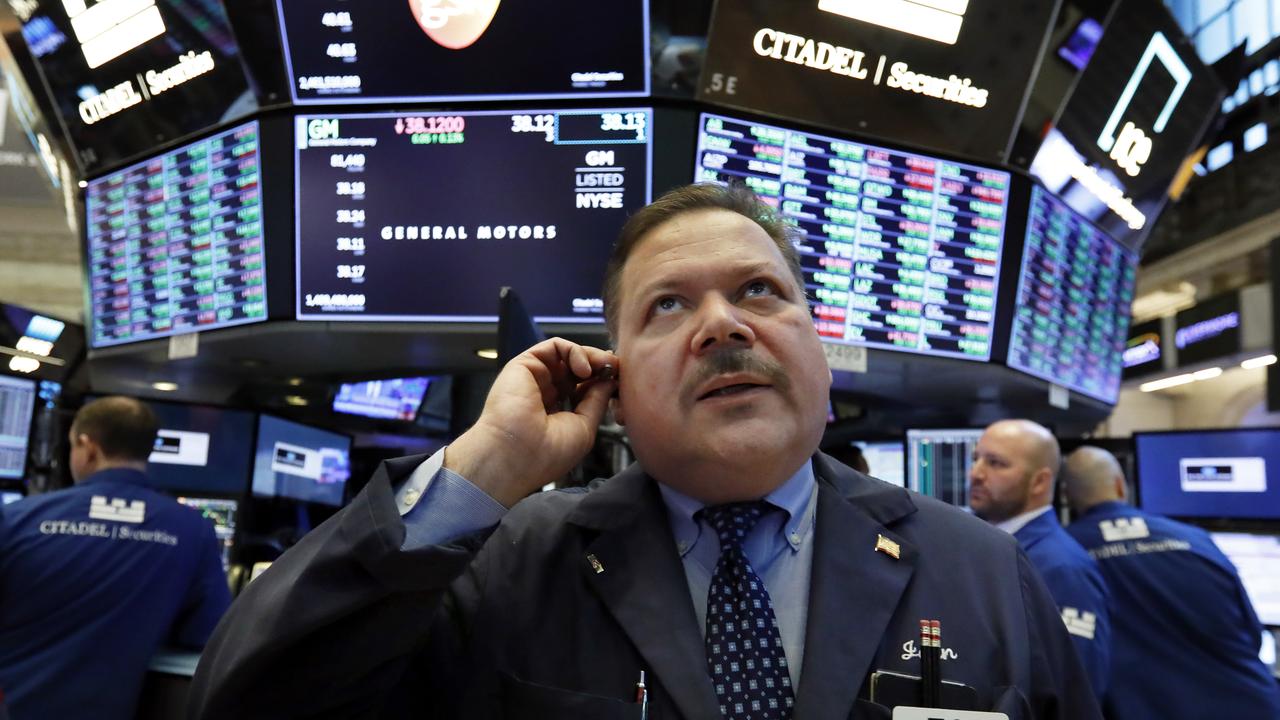Global equities bounce cops three reality checks
DIMINISHED expectations for open-ended ECB money-printing, poor US wages growth and falling oil hit global shares last week.
DIMINISHED expectations for open-ended money-printing from the European Central Bank, disappointing US wages growth and a soggy oil price killed the bounce in global shares last week.
Australia’s sharemarket followed suit yesterday, with energy and materials stocks leading broad-based declines. The benchmark S&P/ASX 200 fell 0.8 per cent to 5422.7.
Crude oil is likely to fall further after Goldman Sachs slashed its spot price forecasts to account for the large availability of low-cost external capital, as well as significant cost deflation and efficiency gains in the US energy sector, meaning oil has to stay “lower for longer” to reduce supply.
Under Goldman Sachs’ revised oil price forecasts, Brent crude will be extremely weak at $US43 a barrel in six months and still stubbornly weak at $US70 a barrel in 12 months.
Such a weak oil price scenario would put a lot of downward pressure on Australian oil producers, including BHP Billiton, which fell 2.2 per cent to $28.51 yesterday.
Santos fell 5.2 per cent to $7.29 after Standard & Poor’s cut its oil price forecast for the third time in five weeks, increasing the risk of an equity capital raise to keep its investment grade credit rating.
The ratings agency lowered its 2015 average forecast for Brent crude to $US55 a barrel, versus $US70 a barrel just before Christmas, saying: “There appear to be no immediate mechanisms to support higher oil prices in 2015.”
Low fuel prices will be good for the economy, but given the significance of the energy sector in Australia, and the tendency for industrial commodity prices to track crude oil, the overall market may struggle to rally until crude finds support.
Goldman Sachs’ revised crude oil price forecasts will no doubt speed up the adjustment process — and it will certainly be interesting to see how the Saudis react to Brent crude near $US40 a barrel.
But at the currently level near $US49 a barrel, Brent crude is still 26 per cent above major support from the 2008 low at $US36.20, so more pain looks to be in store for the energy and gas sector.
Outside of the oil and gas sector — and potentially the mining sector as well — equities should fare reasonably well before the ECB meeting on January 22.
Bloomberg reported on Friday that ECB staff presented policymakers at a Governing Council meeting with models for buying €500 billion ($722bn) of investment-grade assets.
That would only take the ECB to just over half way towards Mario Draghi’s goal of expanding the ECB’s balance sheet to the previous peak of €3.1 trillion.
There is the question of whether Bundesbank officials will change their stance and agree to sovereign bond-buying, and the final decision on QE may be complicated by tomorrow’s European Court of Justice opinion on whether sovereign bond-buying under the existing Outright Monetary Transaction sovereign bond buying facility is legal under the Maastricht Treaty.
However, Draghi has already committed to doing “whatever it takes” to preserve the euro, and it would be a brave man who bets against the ECB announcing some “shock & awe”.
Perhaps €500bn will be a starting point for unlimited QE from the ECB. Such an outcome could help lower international funding costs for Australian banks, Macquarie Equities pointed out in a note yesterday.
That said, with the Greek election outcome due on January 25, global equity markets could well adopt a “buy on rumour and sell on fact” stance before the ECB meeting.


